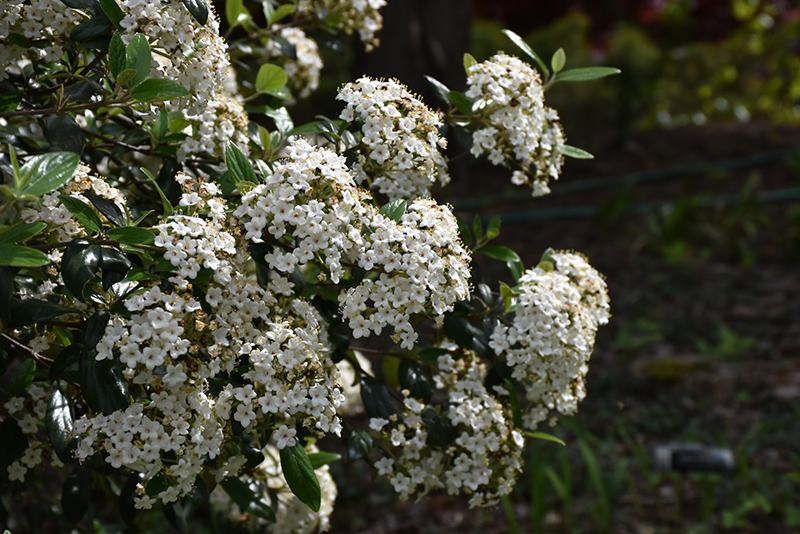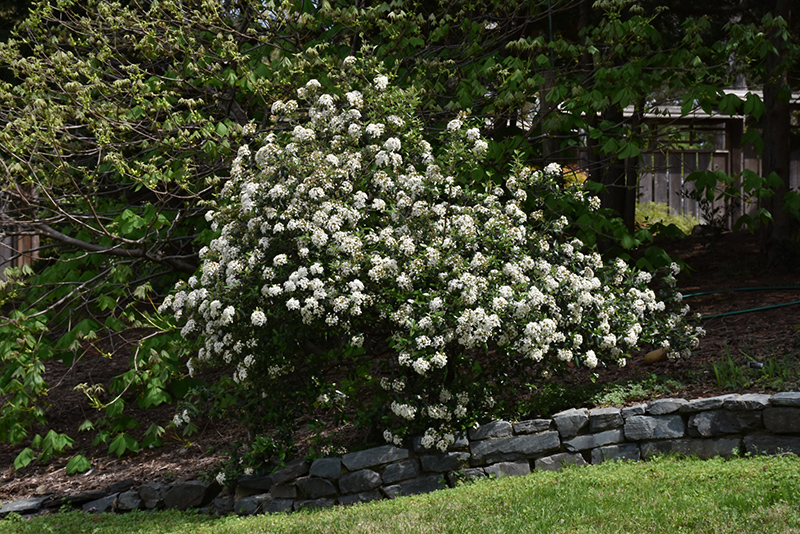>> Home
Height: 4 feet
Spread: 6 feet
Sunlight:
![]()
![]()
Hardiness Zone: 6
Description:
A mounded and spreading broadleaf evergreen shrub featuring white ball-shaped clusters of flowers which open from red buds in early spring, tidy the rest of the year; an ideal specimen or border shrub, always refined and elegant
Ornamental Features
Conoy Viburnum features showy clusters of lightly-scented creamy white flowers at the ends of the branches in early spring, which emerge from distinctive rose flower buds. It has dark green evergreen foliage. The glossy pointy leaves turn deep purple in the fall, which persists throughout the winter.
Landscape Attributes
Conoy Viburnum is a dense multi-stemmed evergreen shrub with a more or less rounded form. Its average texture blends into the landscape, but can be balanced by one or two finer or coarser trees or shrubs for an effective composition.
This is a relatively low maintenance shrub, and should only be pruned after flowering to avoid removing any of the current season's flowers. Deer don't particularly care for this plant and will usually leave it alone in favor of tastier treats. It has no significant negative characteristics.
Conoy Viburnum is recommended for the following landscape applications;
- Mass Planting
- General Garden Use
Planting & Growing
Conoy Viburnum will grow to be about 4 feet tall at maturity, with a spread of 6 feet. It has a low canopy with a typical clearance of 1 foot from the ground. It grows at a medium rate, and under ideal conditions can be expected to live for 40 years or more.
This shrub does best in full sun to partial shade. It prefers to grow in average to moist conditions, and shouldn't be allowed to dry out. It may require supplemental watering during periods of drought or extended heat. It is not particular as to soil type or pH. It is highly tolerant of urban pollution and will even thrive in inner city environments. This particular variety is an interspecific hybrid.

